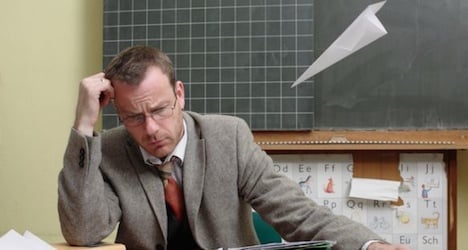That’s one of the conclusions of a study conducted by the University of Northwestern Switzerland (Fachhochschule Nordwestschweiz) with backing from the national science foundation.
The study also found that one in five teachers feel ”constantly overwhelmed,” the SonntagsZeitung newspaper reported on Sunday.
The results are based on a survey of 600 teachers across Switzerland’s three major linguistic areas in the fifth to ninth school years.
The study found a high amount of work, conflicts with parents and problem students were among the reasons many teachers were suffering.
A strong majority (87.2 percent) of teachers still found their profession to be “fun” and most said they were satisfied with their profession, according to SonntagsZeitung.
Beat Zemp, president of the federation of German-language teachers in Switzerland, said his organization is calling for a minimum of 22 students per class in a bid to reduce the stress.
The organization is also lobbying for shorter work weeks for teachers, the SDA news agency reported.



 Please whitelist us to continue reading.
Please whitelist us to continue reading.
Member comments